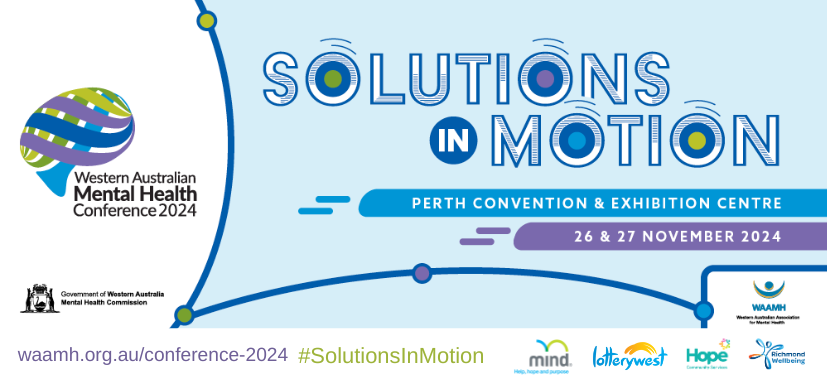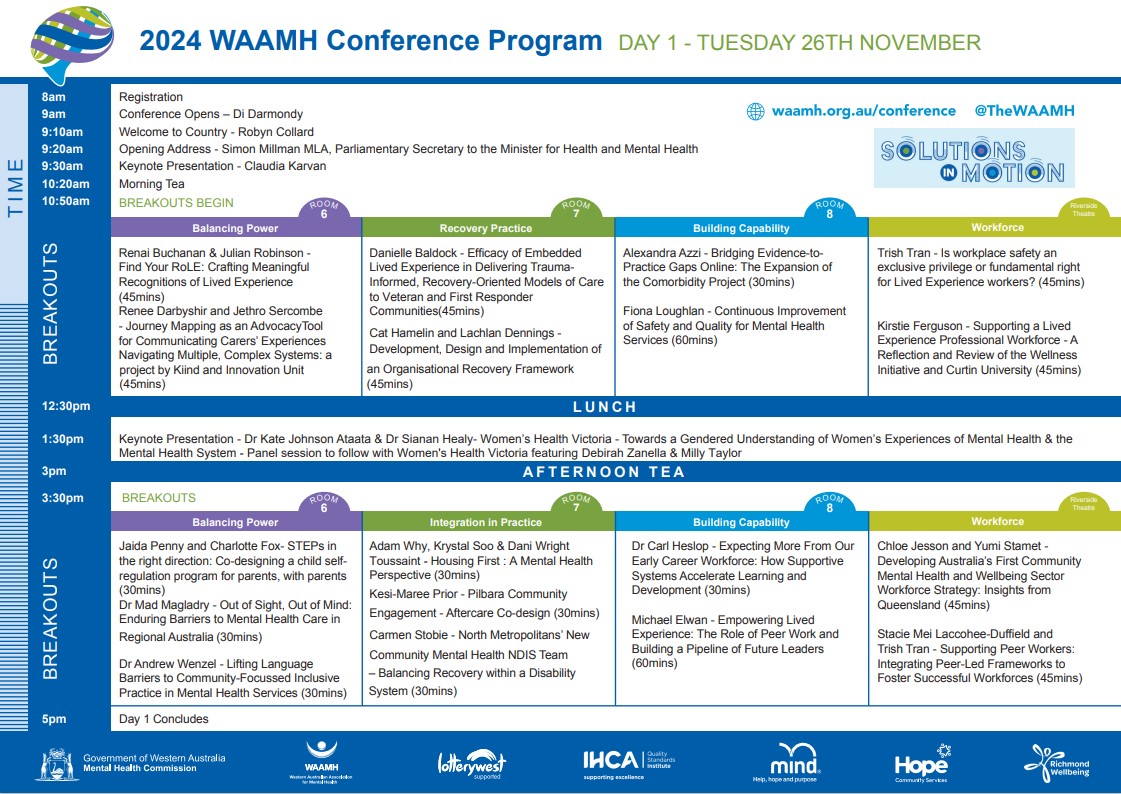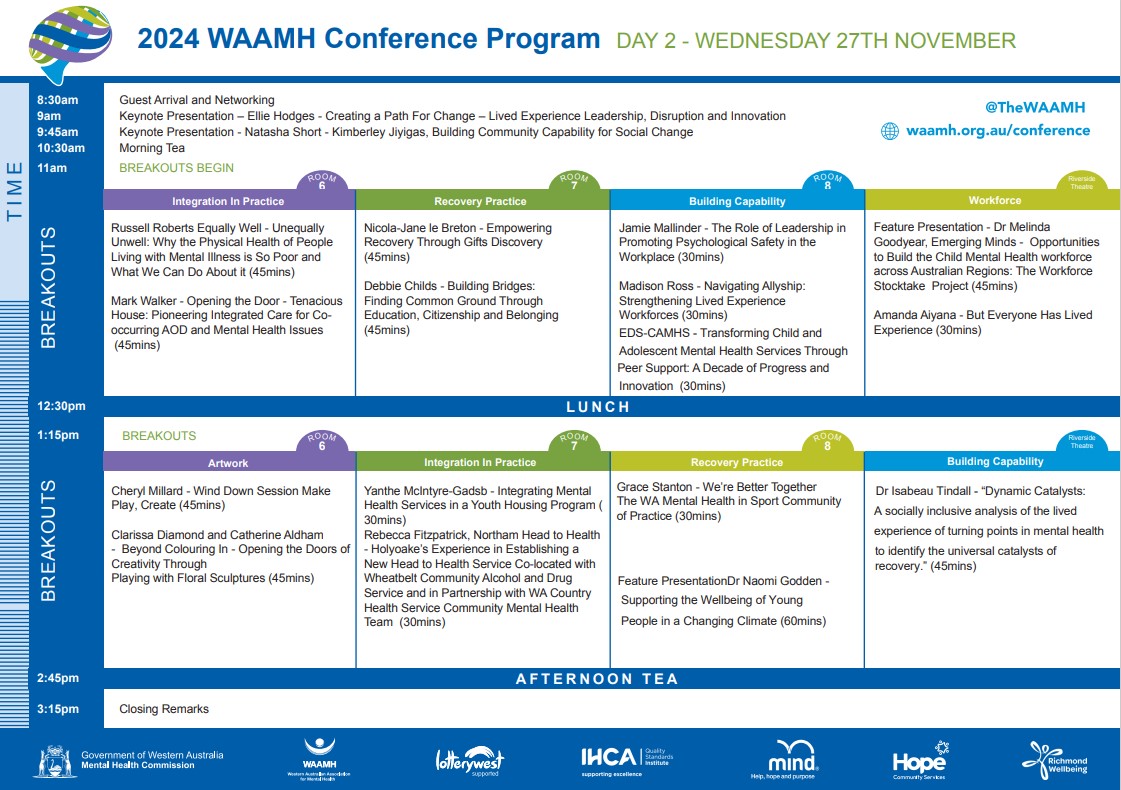
The program offers thought-provoking audience discussion and activities to explore practical implications of mental health and wellbeing support in workplace and community settings.
DOWNLOAD THE CONFERENCE PROGRAM HERE
We have aimed to showcase a diverse and dynamic range of presenters and topics representing a range of viewpoints, experiences and research, to enrich the learning, expression of ideas and collaboration at the conference.
Perspectives from people working in clinical, community, corporate, government, not-for-profit and academic settings, as well as the voices of lived and living experience are all featured in the program, from all areas around the state and country.
Additionally there will be a Wellbeing Room and Chill-out Zone; exhibitor displays from our sponsors, art and a stack of resources and information.
Please note, some of the sessions, presenters or timings may be subject to minor change or adjustment due to potential factors outside of our control.
We recognise that a combination of factors, including roles, strengths, and supports within the mental health workforce and in the community, contribute to a person's overall mental wellbeing and recovery journey. Therefore it's vital they all complement each other and work effectively together for this shared purpose.

